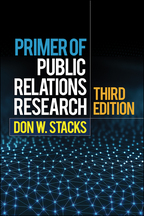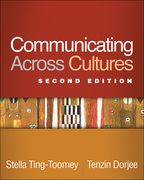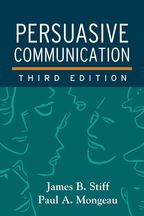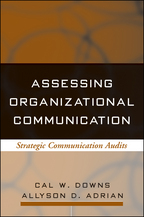Communication Theory
Epistemological Foundations
James A. Anderson
Hardcover
Hardcover
orderMay 17, 1996
ISBN 9781572300835
Price: $57.00 259 Pages
Size: 6" x 9"
“Communication Theory is a smart and innovative text. Its publication marks a significant departure from naive and often simplistic reviews of the literature. Anderson demonstrates convincingly that epistemological hegemony has passed. Unlike in the past, knowledge claims in communication studies today are contested at an assumptive level. If productive discussions are to be had in this new pluralistic environment, careful understanding of basic assumptions and alternative forms of reasoning are necessary. Anderson's metatheoretical position enables an insightful investigation of knowledge claims in communication studies and of how scholars write and justify their claims. I disagree with the analysis at places, but I was consistently impressed with the rigor of the investigation and carefulness of the arguments. I consider this text to be essential reading for all graduate students and scholars who want to understand contemporary controversies in the field. The issues are sophisticated and the positions somewhat radical, but the text reads well and would stimulate productive discussions in most seminars and over coffee.”

—Stanley Deetz, Ph.D., University of Colorado. President of the International Communication Association, 1996-97
“This book (Anderson) treats us to a tightrope walk between communication theories and the communication practices of communication scholars. Instead of providing simple answers to the epistemological questions theories inevitably raise, it (he) draws numerous distinctions between communities of scholars that claim to have them, and thus shows us how communication scholarship is made in the process of communication of communication.”

—Klaus Krippendorff, Ph.D., Professor of Communication at the University of Pennsylvania
“Anderson's book stands alone; it's one of a kind. I know of no other single text that is as comprehensive in its treatment of communication theories. The range of the work is remarkable. It is not merely a comprehensive review of communication theories, it is the way Anderson grounds them in the philosophy of science that is the noteworthy contribution.”

—Leonard C. Hawes, Ph.D., University of Utah
—Stanley Deetz, Ph.D., University of Colorado. President of the International Communication Association, 1996-97
“This book (Anderson) treats us to a tightrope walk between communication theories and the communication practices of communication scholars. Instead of providing simple answers to the epistemological questions theories inevitably raise, it (he) draws numerous distinctions between communities of scholars that claim to have them, and thus shows us how communication scholarship is made in the process of communication of communication.”
—Klaus Krippendorff, Ph.D., Professor of Communication at the University of Pennsylvania
“Anderson's book stands alone; it's one of a kind. I know of no other single text that is as comprehensive in its treatment of communication theories. The range of the work is remarkable. It is not merely a comprehensive review of communication theories, it is the way Anderson grounds them in the philosophy of science that is the noteworthy contribution.”
—Leonard C. Hawes, Ph.D., University of Utah







